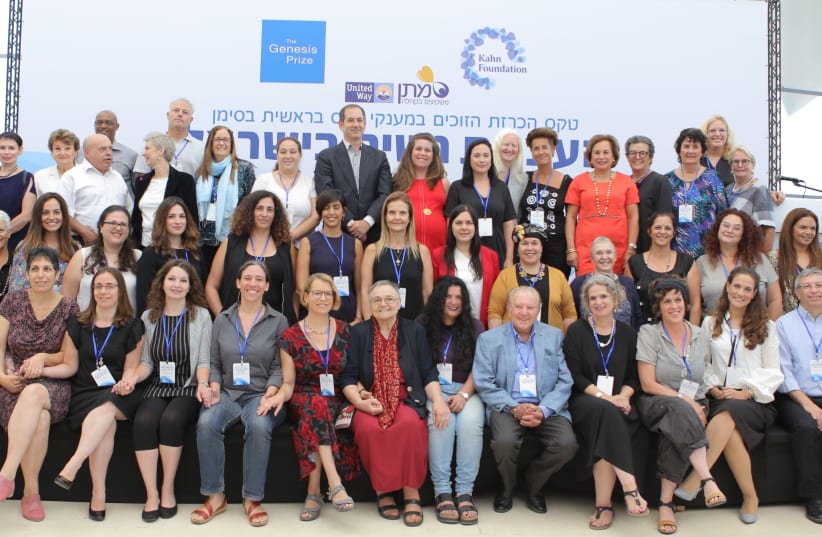Genesis Prize Foundation giving $1m to 37 NGOs for Israeli women’s rights
“This is a systemic, across-the-board effort to support the women’s movement in Israel over the next two years,” explained Sana Britavsky, deputy CEO of the Genesis Prize Foundation, at the event.
